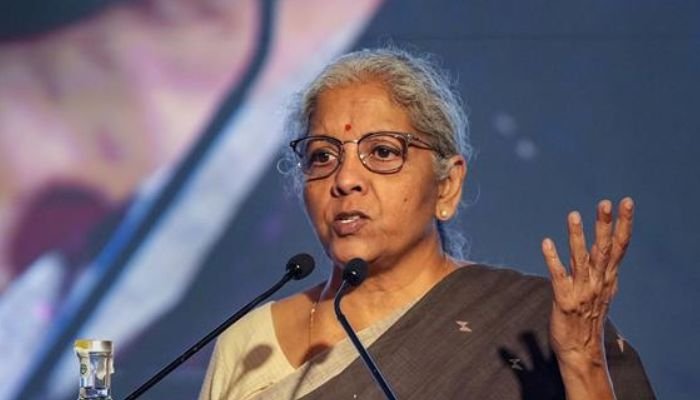In a recent parliamentary discussion, Finance Minister Nirmala Sitharaman addressed a crucial aspect of India's taxation system—the Goods and Services Tax (GST) registration threshold. The revelation suggests that the GST Council may consider pleas to revise the current threshold, opening up possibilities for a more inclusive and adaptable GST framework.
| Table Section |
|---|
| 1. Introduction |
| 2. The Call for Adjustment |
| 3. Inclusivity in the GST Chain |
| 4. National Appellate Authority for Advance Ruling |
| 5. Petrol and Diesel in GST |
| 6. Amendments for Alignment |
| 7. FAQs |
| 8. Conclusion |
The Call for Adjustment:
The focal point of the discussion was the appeal to raise the sales threshold for GST registration. Minister Sitharaman indicated that the GST Council could delve into this matter, highlighting the responsiveness of the government to the evolving needs of businesses.
.jpg)
Inclusivity in the GST Chain:
Minister Sitharaman underscored the importance of most small businesses being part of the GST chain. Acknowledging the proposal to raise the threshold from ₹40 lakh to ₹60 lakh, she emphasized that the involvement of small firms is crucial, leaving the final decision to the GST Council.
National Appellate Authority for Advance Ruling:
The discussions also touched upon the establishment of a national appellate authority for advance ruling, a provision outlined in the GST law. Sitharaman acknowledged the trade's interest in such an authority, signaling the government's recognition of Parliamentarians' concerns.
Petrol and Diesel in GST:
Suggestions about incorporating petrol and diesel into the GST framework were raised. Sitharaman expressed hope that state governments would understand the perspective, indicating a potential expansion of the GST ambit and a broader dialogue on taxation policies.
Amendments for Alignment: T
he proposed amendments to the GST law aim to align the GST appellate tribunal with the 2021 tribunals reform and a decision by the Madras High Court. Sitharaman highlighted the consistent growth in monthly GST return filing, showcasing an impressive increase in compliance from 71% three years ago to the current 90%.
(FAQs)
Q1: What is the recent development regarding the GST registration threshold?
A1: Finance Minister Nirmala Sitharaman recently revealed that the GST Council is open to considering requests to revise the current GST registration threshold, as discussed in a parliamentary session.
Q2: What was the specific plea discussed in Parliament regarding GST registration?
A2: The focus of the discussion was on the appeal to raise the sales threshold for Goods and Services Tax (GST) registration.
Q3: Who will be responsible for evaluating and potentially adjusting the GST registration threshold?
A3: The responsibility lies with the GST Council, which will examine pleas and make decisions on whether adjustments to the GST registration threshold are necessary.
Q4: Why is inclusivity in the GST chain emphasized by Finance Minister Sitharaman?
A4: Minister Sitharaman highlighted the importance of most small businesses being part of the GST chain for a more comprehensive and effective GST framework.
Q5: What is the proposed adjustment to the GST registration threshold mentioned in the discussions?
A5: There is a proposal to raise the GST registration threshold from ₹40 lakh to ₹60 lakh, which Minister Sitharaman acknowledged as a valid suggestion, leaving the final decision to the GST Council.
Q6: What other key points were discussed in relation to GST during the parliamentary session?
A6: The discussions also touched upon the establishment of a national appellate authority for advance ruling, suggestions about including petrol and diesel in the GST framework, and amendments to align the GST appellate tribunal with recent reforms and court decisions.
Q7: What amendments are proposed to the GST law?
A7: The proposed amendments aim to align the GST appellate tribunal with the 2021 tribunals reform and a decision by the Madras High Court. These changes are part of an effort to enhance the effectiveness of the GST system.
Q8: How has GST compliance evolved in recent years?
A8: Minister Sitharaman highlighted consistent growth in monthly GST return filing, with compliance reaching 90%, compared to 71% three years ago.
Q9: What is the significance of the Provisional Collection of Taxes Bill, 2023 mentioned in the content?
A9: This bill allows the government to give immediate effect to customs and excise duty changes proposed in the Finance Bills from the next day onwards without having to wait for the Bills’ passage.
Q10: When can we expect further updates on these developments?
A10: Stay tuned for updates as India explores avenues for a more responsive GST framework. The final decisions rest in the hands of the GST Council, and ongoing discussions may lead to additional insights and adjustments in the future.
Conclusion:
As the discussions unfold, the insights shared by Finance Minister Nirmala Sitharaman underscore a dynamic approach by the government to refine and enhance the existing GST framework. The potential adjustments and the emphasis on inclusivity in the GST chain signal a commitment to creating a more comprehensive and adaptive GST regime. With the final decisions resting in the hands of the GST Council, these developments pave the way for a taxation system that aligns more closely with the evolving needs of businesses, both large and small. Stay tuned for updates as India explores avenues for a more responsive GST framework.


